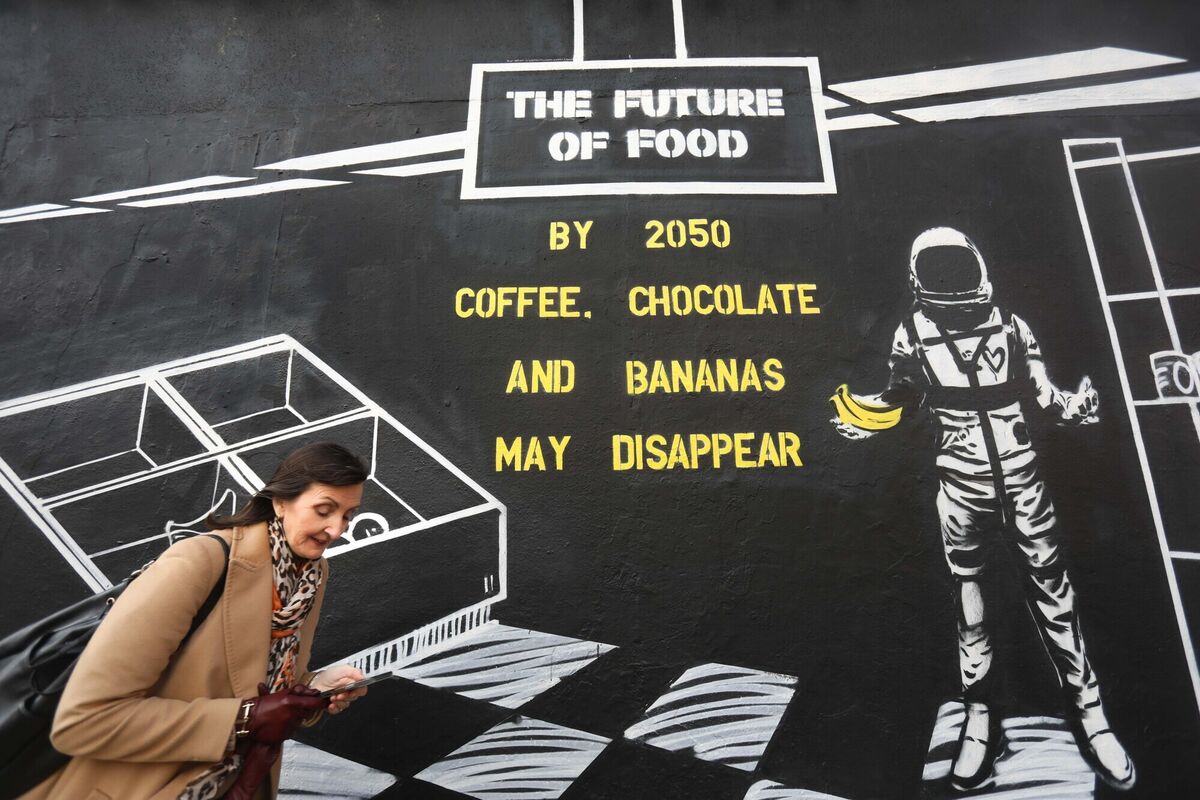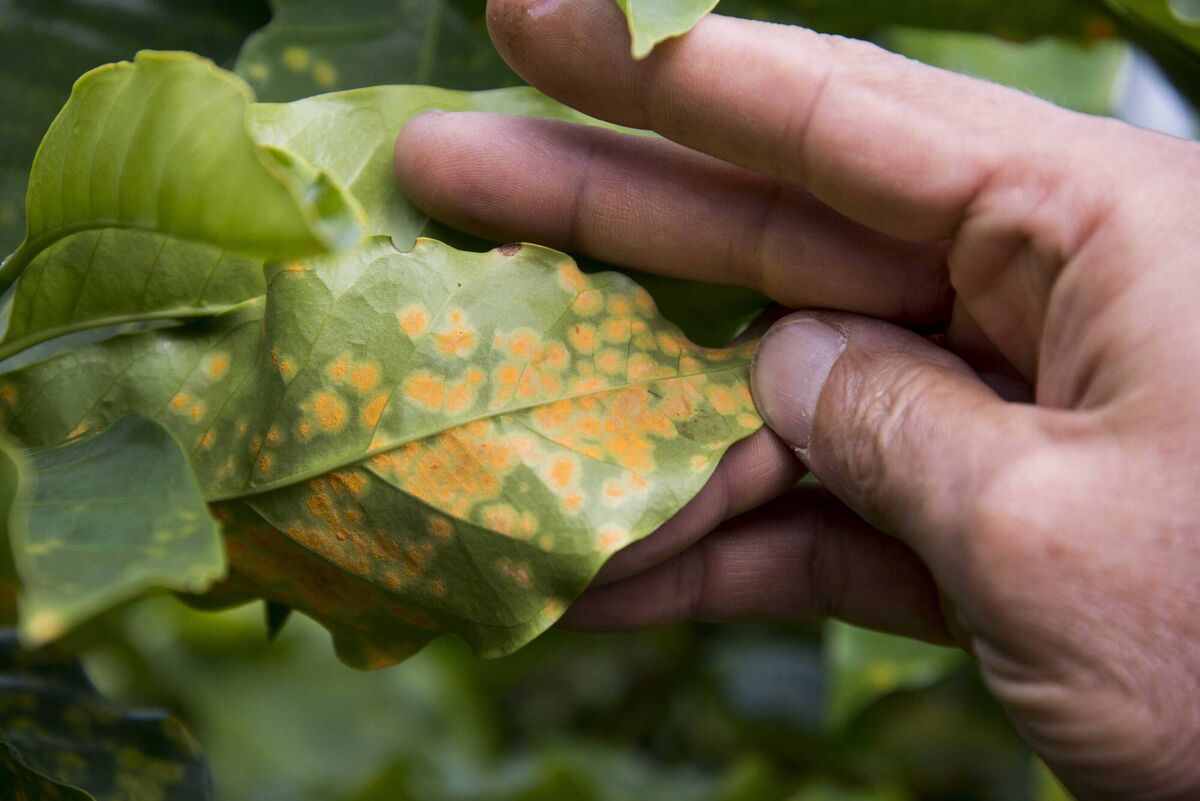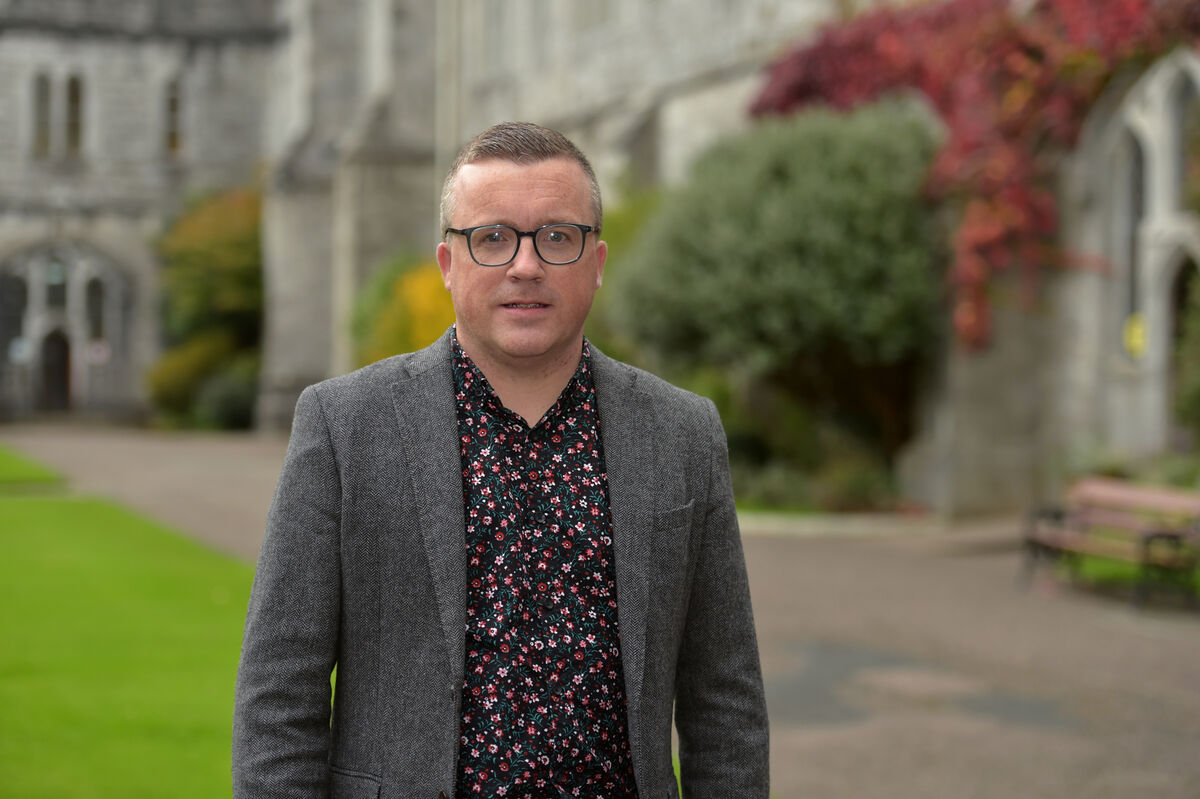
Could you survive without your morning cuppa?
IMAGINE a world where coffee is a luxury in the lifestyles of the rich and famous, where bananas and chocolate bars are a distant memory of the past, but where you could instead lament your sorrows with a bottle of the finest sparkling wine produced in Wexford.
It may sound far-fetched, but with the burgeoning effects of climate change and the ever-insidious diseases that pervade crop growing throughout the world, it is entirely possible, according to scientists.
A warming world means that growing conditions are changing all the time, while disease in plants are getting ever more threatening.
Fairtrade Ireland caused the proverbial stir earlier this week when it warned that coffee that we have all grown to love and take for granted as a morning kickstart could be gone from supermarket shelves by 2050 as climate change accelerates.
“We could be looking at the end of the much-loved cup of coffee,” said Fairtrade Ireland’s executive director Peter Gaynor, speaking at the launch of Fairtrade Fortnight, a festival of ethically sourced products.
“Farmers who grow coffee beans are experiencing serious challenges due to many extreme weather events, such as in Kenya, East Africa, which is right now experiencing its worst drought on record.

"A worrying 93% of the Fairtrade coffee farmers in Kenya surveyed are already experiencing the effects of climate change.
"By 2050, it is estimated up to half of the world’s land currently used to farm coffee may be unusable due to floods, droughts and increased temperatures,” Mr Gaynor said.
If that sounds like doom-mongering, consider the history of coffee rust. The disease changed the habits of a colonial empire that spanned the world.
UCC lecturer in plant science and principal investigator at the School of Biological, Earth and Environmental Science (BEES), Eoin Lettice, said coffee rust changed British society forever in the second half of the 19th century.
One of the enduring stereotypes about English people is their love of a nice cup of tea. However, they were originally big coffee drinkers before coffee rust forced them to turn to tea leaves.
“Coffee was the major commodity, or one of the major commodities, in the old British Empire in the 1840 and 1850s," Dr Lettice said.
"And across the world, the British Empire grew coffee in the 1850s and 1860s, until coffee rust emerged, and wiped out huge plantations all over the world.
"And then very quickly, the British reacted by drinking and growing tea instead. It was almost a patriotic thing to drink tea rather than coffee."
The fungus La Roya, also known as coffee rust, caused more than $3bn in damage and lost profits and forced almost 2m farmers off their land between 2012 and 2017, Fairtrade Ireland said.
Climate change a pressing issue
Climate change and disease migration in plants and crops is now a pressing issue, according to Dr Lettice.
Consumers just take for granted what they can pick up in their local shops, supermarkets, and farmers’ markets, but that could all change due to the fallout from climate change, he said.
“Ireland is lucky enough as a relatively secure nation when it comes to food because we have access to trading partners. But we are food secure because we have access to importing lots of the particularly large horticultural produce that we consume.
We are self-sufficient in dairy and beef, but we import lots of vegetables and so on.
Climate change will be disruptive to those chains of production and to imports that we take for granted, he warned. This will be coupled with the threat of plant disease.
“There will be dramatic weather events which will increase through climate change, and these outbreaks of the various diseases that go hand in hand.
"I can’t stress this enough. There’s a real role for plant scientists or plant breeders or plant pathologists to solve these problems. We sometimes turn up at our local supermarket and assume that we would be able to get everything we want.
“It’s only when that system breaks down that we realise, hold on a minute. There’s a whole network of science and logistics and business economics that go on behind the scenes to make sure that every morning when you go to the supermarket, or when you go to the farmers market, or wherever you go, to ensure that everything is there for you.
There is a kind of a tendency to believe that will always be there.
"Climate change will change everything about how we live our lives and how we operate and we will have to change to adapt to all of that,” he said.
While traditional coffee-growing regions may be hamstrung by the burgeoning climate change existential threat, it will mean other regions become producers.

That is already happening in the likes of coffee and even wine production, according to professor of geography (climate change) at Maynooth University, Peter Thorne.
“What and where you can grow is impacted by the changing climate. Almost every food type has a preferred climate," Prof Thorne said.
"The overall picture in terms of overall agricultural productivity is reductions in the sub tropics in particular and increases in the high latitudes. We can now grow grain and other produce in higher northern latitudes than we could historically.
“It’s not necessarily that the total food production increases or decreases what you can grow — but where you can grow it does change.
"There will be there will be significant implications for what we grow and what we don’t grow in Ireland, but equally more globally, what is viable, what is produced and cannot be produced. There may be some areas that become unproductive agriculturally,” said Prof Thorne.
The historical patterns tell a story of how climate change is affecting growing, he added.
“You already you already see it in a very long-running series of phenological indicators, seasonality changing, for example in Kyoto, Japan.
"They have annual records of spring blossoming of the cherry trees, going back to around the 12th or 13th century. On average, they blossom now about a month earlier than they did. And that’s just an indication of how things are changing more generally.
“There are many, many indicators, such as the grape harvest at Beaune in the Burgundy wine region in France, another one going back around 800 years. Again, they harvest the grapes about a month earlier now than they did for centuries.
“In the southern UK, there are now many producers of bubbly wine similar to that produced in the Champagne region as the climate has shifted so much that the southeast of the UK now has growing conditions similar to the historical regions of Champagne. Some of their sparkling wines in the southeast of the UK are winning international prizes.
It is not beyond the realms of possibility that if we continue emitting heat-trapping gases, then the southeast of Ireland become viable for similar.
"I wouldn’t suggest that the farmers rip up their fields just yet but these are the kinds of things that we need to think about: what we produce and where we produce it.”
It is not just coffee, chocolate, or wine that is changing before our eyes. An unusually cold snap across Europe and North Africa in recent weeks led to vegetable scarcity on supermarket shelves, a harbinger of things to come.
Barbara Doyle Prestwich, who is based at UCC’s School of Biological, Earth and Environmental Sciences and Environmental Research Institute, said bare supermarket shelves should be a wake-up call that Ireland cannot take its lofty global food security position for granted.
“There is a lot of evidence emerging in terms of overall climate change leading to extreme weather patterns, and while you cannot just pinpoint one event, what you can see is decades of change coming home to roost,” said Ms Doyle Prestwich.
“The short answer is yes, we can expect to see more extreme weather events and patterns like storms and higher and lower temperatures impact our growing conditions in Ireland and elsewhere. It is an issue, no doubt.”
Changing food security
At the moment, Ireland is fortunate in relation to its position on the Global Food Security Index but that could all change, Ms Doyle Prestwich warned.

The index measures factors such as affordability, nutritional standards, consumption, and sustainability in determining the security of 113 countries’ food supply. Ireland was second only to Finland in 2022.
Ms Doyle Prestwich said: “We are sitting comfortably at number two at the moment, but that is very much a moveable situation. You see places like Singapore that were once in the top position some years ago but have since dropped way down to 28. It is always a moveable situation in terms of food security.”
Her UCC colleague Dr Lettice pointed to the vulnerability of bananas as a good example of the changing world when it comes to food security.
“Bananas are in a similar boat because of another fungal issue called Panama disease," he said.
"Again, it’s been around for a century causing problems with bananas. All bananas are genetically identical. All bananas that we buy in the supermarket, in this part of the world and others, are all genetically identical. They’re not just the same variety, there is no genetic variation,” said Mr Lettice.
“If you have a disease in bananas, it can run riot. And the question is, I suppose how we produce new varieties of coffee or chocolate or or
bananas or whatever. We have to quickly breed new varieties so that they’re more flexible and can deal with a changing climate but also as the pathogens that emerge and reemerge in different strains. It’s a constant battle,” he said.

WHEN it comes to coffee, the likes of Cork’s Velo Roasters are already taking stock and preparing for the inevitable.
Rob Horgan of Velo Coffee Roasters said it’s now about cultivating even closer links with local producers in the likes of Colombia, where he is soon heading.
“Where we sell a speciality coffee, we want the best of the crop. And it’s important that we have long-term relations with the farmers, so they know they can invest in their farm this year because we will be there next year to buy the crop.
“Those price pressures that we saw here in recent years over here, they had the same — their inputs rose across the world during the last number of years.
"For us to be able to get the consumer here to give a little more, that little amount in our world made a big difference in the coffee growing regions. We forward commit our coffee so they have surety before they even go out to pick the harvest that if the crop is right and the quality is right, we will buy it off them.”
Those relationships mean assisting local communities, he added.
“For us, it’s back down to small individual relationships, doing meaningful projects. For example, our Colombian coffee relationship builds a bridge across a small valley at a cost of $2,500, which on this side of the world isn’t much.
"The community couldn’t do it and the kids had to walk 15 miles a day to get to school, before the bridge. The school was just across the valley but they would have to walk all the way up and back down, which meant kids weren’t going to school.
"It’s those meaningful pieces that will make the difference.”
Read More
Ireland's emissions continue to rise despite hitting 79% of climate targets #Climate Change#FoodOrganisation: Fairtrade Ireland




